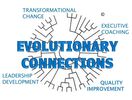|
www.evolutionaryconnections.co.uk
Values based recruitment? Only if you mean it. Values based recruitment is becoming an increasingly popular practice. It’s been around for a while now in health and care and lots of other industries too. Charities such as Skills for Care offer toolkits and support. The NHS offers its own guidance and organisations like NHS Employers offer similar resources and services. It must be a good thing, right? Organisations using these methods report many benefits including improved staff morale, lower sickness and absence rates and better quality of services provided. Skills and knowledge can be developed once someone is in the job. Knowing that a new employee shares the values of the organisation and will fit well into the team culture is surely something worth putting time and resources into.
I think value-based recruitment is an amazing thing. I experience great joy working with organisations to develop and deliver values-based recruitment approaches. There is nothing more satisfying than working with a group of people and being confident that the organisation has got the right person for the job and the person has got the right organisation for them. It’s as much about the person choosing the organisation as the organisation choosing the person. Its wonderful to see people grow and develop in an environment where they can flourish, and I believe values-based recruitment can provide a great start to enable this to happen. As this language and practice becomes more popular I would add a caution. As an organisation and a leader you must really mean it. As an organisation its worth spending time and effort considering your values. Are they relevant? Are they alive in your organisation underpinning the decisions and demonstrated by actions and behaviours? Your values statement must be authentic and as a leader you must live it. The dark side of this practice is recruiting staff to your espoused values and then failing to deliver. In health and care the values we look to align are our core or focus values. These are the ones that when fulfilled provide meaning to our work. Values change depending on our age, experiences and circumstances but some remain more constant and are rooted in our upbringing and culture. These values are the ones that when transgressed are likely to provoke us to shout back at the television, to dislike someone or be extremely angry with them. When someone is recruited on a values basis to an organisation, they believe that they share values. The organisation offers them a vision of a world the person aspires to be part of. They expect to experience their core values in their day to day work. When the organisation fails to deliver this the effects are devastating. As a coach, the people I support to make decisions about career future where core values have been transgressed are the most angry and bereaved. When organisations do not deliver on values-based promises people feel utterly betrayed. This is dreadful for the employee and damaging for the organisation. These people do not forget their experiences and sometimes do not forgive easily. Values based recruitment is amazing if executed sincerely based on authentic values which the organisation is truly committed to. If not, then please don’t use this as the latest marketing tool to attract new staff in a demanding market. The results are cruel and messy. Comments are closed.
|
AuthorJane Pightling has experience across the public, private and charitable sector. Through her work in the NHS Leadership Academy and her consultancy Evolutionary Connections she developed complex systems leadership capacity, providing training, coaching programmes and establishing networks and communities of practice to sustain learning. She maintains her social work registration and her commitment to person centred and community focused approaches. Jane has a deep interest in the potential offered by new ways of working, designing and building organisations and communities that can best deliver this kind of service. She works with organisations and leaders to develop approaches that design in autonomy, wholeness and purpose. Archives
October 2021
Categories
All
|



 RSS Feed
RSS Feed